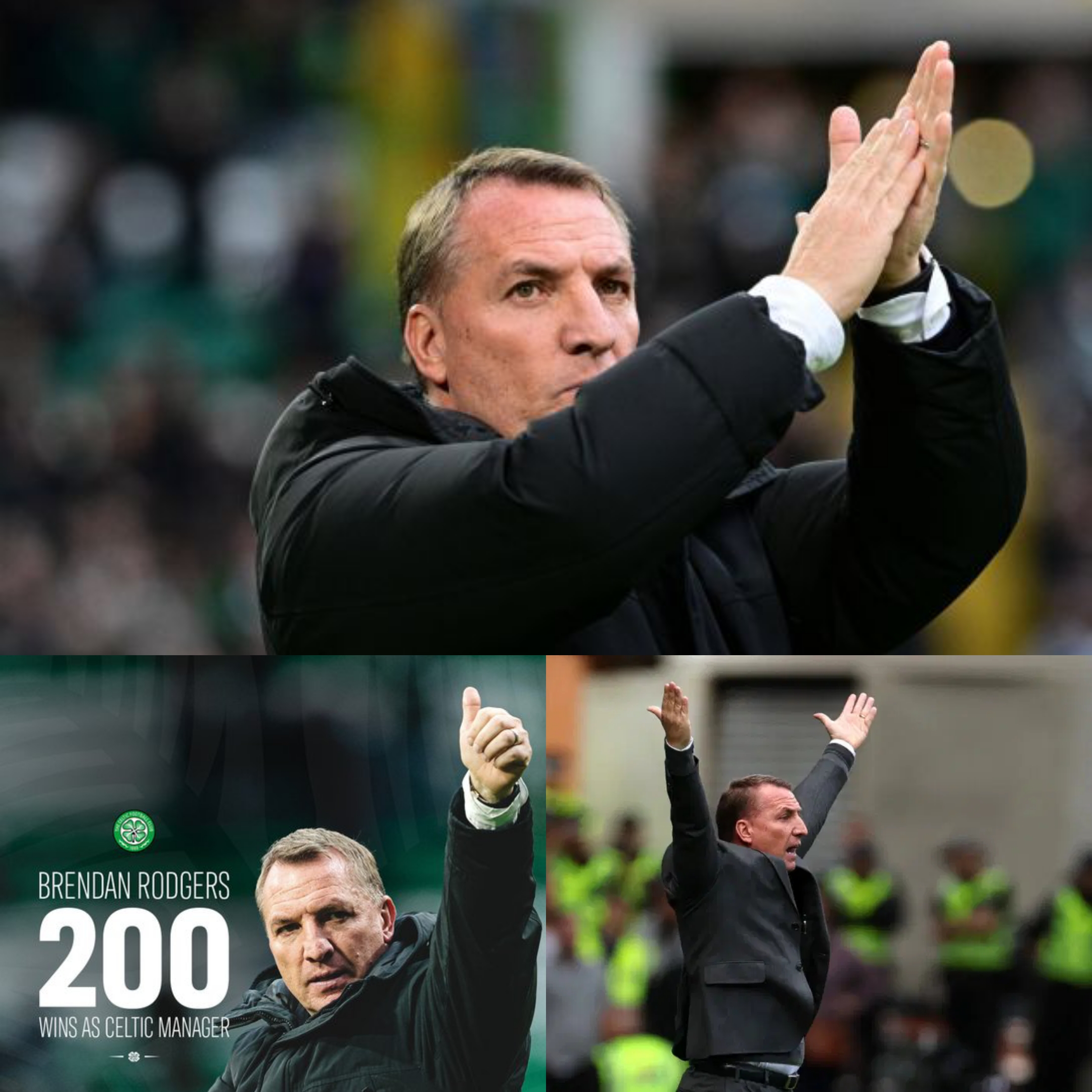Brendan Rodgers recently marked an important personal milestone, recording his 200th win as Celtic manager after a tense and hard-earned 2-1 victory against Motherwell. This achievement reflects the success and influence Rodgers has had at the club across two spells, but it also comes at a time when Celtic are clearly struggling to find their rhythm and identity on the pitch. Despite the win, Rodgers was open and honest about the fact that his team is far from their best, highlighting just how difficult this season has been for both him and the squad.
The match itself was a microcosm of Celtic’s current form — gritty, determined, and ultimately successful, but far from convincing or dominant. Daizen Maeda’s injury-time winner was a perfect illustration of the team’s fighting spirit and refusal to settle for anything less than three points, even when the overall performance lacked the sharpness and cohesion seen in previous seasons. While the victory is a welcome boost, it also raised questions about how the team has drifted from the style and fluidity that brought them sustained success in the past.
Rodgers’ comments after the game revealed the depth of the challenges facing Celtic this season. He described this period as the biggest challenge he has encountered during his two stints as manager, pointing to the difficulty in finding balance and injecting the necessary pace into the team. This is significant because speed and tempo have long been hallmarks of Rodgers’ Celtic teams, helping them to dominate domestically and compete in Europe. The fact that those key traits are missing indicates issues that run deeper than just temporary poor form or a few bad results.
One major factor contributing to this decline is Celtic’s apparent inability to capitalize fully on their strong position in the transfer market during the summer. In previous seasons, the club’s recruitment was smart and strategic, bringing in players who fit the team’s tactical system and added value immediately. This season, however, Rodgers’ squad seems to lack some crucial characteristics, whether due to injuries, departures, or transfers that haven’t quite worked out. The absence of those “certain characteristics” Rodgers mentioned points to gaps that have made it more difficult for the team to maintain their usual attacking intensity and defensive solidity.
Despite these difficulties, Rodgers emphasized the importance of finding ways to win games regardless of the circumstances. His pragmatic approach highlights a manager focused on results and resilience — values that are essential in a long, demanding season. Celtic’s players showed “big heart,” “spirit,” and “fight” against Motherwell, traits that Rodgers hopes will carry them through the tough periods ahead. It’s a recognition that football is not always about perfect performances but often about grit and determination when things don’t go your way.
For the Celtic faithful, Rodgers’ milestone of 200 wins is a reminder of the success he has brought to the club, winning multiple league titles and raising the club’s profile on the European stage. His return to Celtic was met with great optimism, as supporters hoped he could replicate the dominance of his first tenure. But now, with the team struggling and Rodgers’ contract situation unresolved, there is an undercurrent of uncertainty. Fans are left wondering whether the club’s leadership will continue to back him or if they might look for new management to rejuvenate the squad and rediscover the winning formula.
This contract uncertainty is significant because it reflects a broader challenge at the club — balancing loyalty and patience with the need for progress and improvement. Rodgers has earned the respect of many through his past achievements, but football is a results-driven business, and a poor run of form or failure to improve can quickly erode confidence. Whether Celtic’s board will extend his contract or consider other options remains a pressing question for supporters and analysts alike.
On a tactical level, Rodgers faces the complex task of rebuilding his squad to regain the qualities that once made Celtic so formidable. Speed and balance, which he referenced, are not simply about raw pace but involve the interplay of player roles, fitness, and tactical systems. Addressing these issues requires not only smart recruitment but also careful management of the current squad to maximize their potential and inject fresh energy.
Moreover, this season’s difficulties also speak to the evolving competitiveness of the Scottish Premiership. While Celtic have historically been dominant, other teams are growing stronger and more organized, making the margin for error smaller. For Rodgers and Celtic, adapting to these challenges is essential if they are to reclaim their position at the top.
In conclusion, Brendan Rodgers stands at a pivotal moment in his Celtic career. The 200th win milestone is a testament to his achievements and his importance to the club’s recent history. Yet, the current struggles highlight that success is never guaranteed and that even the most decorated managers must continually evolve. Rodgers’ candid admission about the challenges faced shows a level of self-awareness and determination to overcome the obstacles ahead. How Celtic respond in the coming months, both on and off the pitch, will define whether this chapter ends in renewed dominance or a period of transition.
For supporters, this is a time to hope that the team can rediscover the qualities that brought them glory and that Rodgers will receive the backing he needs to steer Celtic through this difficult phase. It’s a reminder that football is as much about resilience and adaptation as it is about talent and tactics — and that sometimes, the greatest challenges pave the way for the most rewarding successes.
